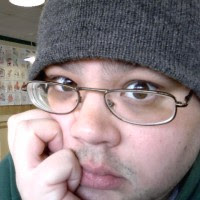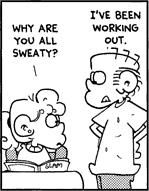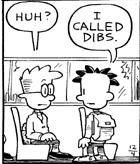The One Boston Celtic I Could Never Hate
Just over two weeks ago, I wrote a little something about the Detroit Pistons' rivalry with the late-1980s Boston Celtics and how my dislike of them formed my identity as a sports fan.
You might notice the one name I left out. No matter how much I despised the Celtics (like any self-respecting Pistons fan of the late 80's and early 90's), I never quite felt the same way about Dennis Johnson. He wasn't cocky like Bird or arrogant like McHale. He wasn't surly like Parish. And he sure as hell wasn't a whining little baby like Ainge.
 He was just a really, really good player who did everything well, and more often than not, was the guy who beat you. He wasn't flashy or boastful. He didn't immediately attract attention. But next to Bird, there may have been no more dangerous player on the court than Dennis Johnson.
He was just a really, really good player who did everything well, and more often than not, was the guy who beat you. He wasn't flashy or boastful. He didn't immediately attract attention. But next to Bird, there may have been no more dangerous player on the court than Dennis Johnson.
To me, it's entirely appropriate that D.J. was the guy who finished one of the most infamous plays in the Pistons-Celtics rivalry (and perhaps all of NBA history), Larry Bird's steal of Isiah Thomas' inbounds pass in Game 5 of the 1987 Eastern Conference Finals. Bird snagged Zeke's pass, but D.J. was the one who cut to the basket and gave that knife the final twist.
Though no other play is immediately as memorable, it seemed like there were plenty of other times Johnson beat the Pistons. (Game 3 of the 1988 Eastern Conference Finals comes to mind, but I can't find any statistical proof to back me up.) And in those instances, all I could do as a Pistons fan was tip my cap. It wasn't personal; the guy was just doing his job. D.J. didn't hold his hand up in a follow-through after making a game-winning shot. If he talked trash to an opponent, no one ever said so. He just made the plays the Celtics needed to win.
As I write this, it's becoming clearer to me why I never held the same animosity toward D.J. as I did for his teammates. Most of the previous paragraphs in this post could've been written about one of my all-time favorite NBA players, Joe Dumars. What Joe D. was to the Pistons, D.J. was to the Celtics. If he had to hit the big shot, he could do it. If he was needed to defend the other team's best player, he did that, too. I'm not sure any guard defended Magic Johnson, despite the obvious height advantage, as well as D.J.
It never occurred to me until reading Bill Simmons' tribute at ESPN.com that Dennis Johnson wasn't in the Pro Basketball Hall of Fame. I just assumed he would be. How can such an integral part of one of the NBA's greatest teams not be in there? Eventually, he surely will be. The man won three championships. He racked up 15,000 points and 5,000 assists. But it's a damn shame that he wasn't able to enjoy such an honor while he was alive.
For that matter, it's also a damn shame that Johnson toiled as a scout and assistant coach without any NBA team ever hiring him for a head coaching position. (That interim gig with the Clippers in 2003 doesn't count.) He died while coaching in the NBA Development League. Meanwhile, three of his teammates from that fearsome Celtics starting lineup - Bird, McHale, and Ainge - scored general manager jobs. (And two of them have proven to be terrible at it.) I realize no one's entitled to be a head coach, but D.J. wouldn't have been a better hire than Dwane Casey, Jim O'Brien, or Doc Rivers?
But I shouldn't be lamenting what didn't happen. This should be about celebrating what did happen, what Dennis Johnson accomplished as an NBA player. He was a champion. Hearing the news of his death was shocking and truly saddening. 52 years old is far too young an age to die.
My loathing of Bird, McHale, Parish, and most definitely Danny Ainge was a key formative influence for me as a sports fan.
You might notice the one name I left out. No matter how much I despised the Celtics (like any self-respecting Pistons fan of the late 80's and early 90's), I never quite felt the same way about Dennis Johnson. He wasn't cocky like Bird or arrogant like McHale. He wasn't surly like Parish. And he sure as hell wasn't a whining little baby like Ainge.
 He was just a really, really good player who did everything well, and more often than not, was the guy who beat you. He wasn't flashy or boastful. He didn't immediately attract attention. But next to Bird, there may have been no more dangerous player on the court than Dennis Johnson.
He was just a really, really good player who did everything well, and more often than not, was the guy who beat you. He wasn't flashy or boastful. He didn't immediately attract attention. But next to Bird, there may have been no more dangerous player on the court than Dennis Johnson.To me, it's entirely appropriate that D.J. was the guy who finished one of the most infamous plays in the Pistons-Celtics rivalry (and perhaps all of NBA history), Larry Bird's steal of Isiah Thomas' inbounds pass in Game 5 of the 1987 Eastern Conference Finals. Bird snagged Zeke's pass, but D.J. was the one who cut to the basket and gave that knife the final twist.
Though no other play is immediately as memorable, it seemed like there were plenty of other times Johnson beat the Pistons. (Game 3 of the 1988 Eastern Conference Finals comes to mind, but I can't find any statistical proof to back me up.) And in those instances, all I could do as a Pistons fan was tip my cap. It wasn't personal; the guy was just doing his job. D.J. didn't hold his hand up in a follow-through after making a game-winning shot. If he talked trash to an opponent, no one ever said so. He just made the plays the Celtics needed to win.
As I write this, it's becoming clearer to me why I never held the same animosity toward D.J. as I did for his teammates. Most of the previous paragraphs in this post could've been written about one of my all-time favorite NBA players, Joe Dumars. What Joe D. was to the Pistons, D.J. was to the Celtics. If he had to hit the big shot, he could do it. If he was needed to defend the other team's best player, he did that, too. I'm not sure any guard defended Magic Johnson, despite the obvious height advantage, as well as D.J.
It never occurred to me until reading Bill Simmons' tribute at ESPN.com that Dennis Johnson wasn't in the Pro Basketball Hall of Fame. I just assumed he would be. How can such an integral part of one of the NBA's greatest teams not be in there? Eventually, he surely will be. The man won three championships. He racked up 15,000 points and 5,000 assists. But it's a damn shame that he wasn't able to enjoy such an honor while he was alive.
For that matter, it's also a damn shame that Johnson toiled as a scout and assistant coach without any NBA team ever hiring him for a head coaching position. (That interim gig with the Clippers in 2003 doesn't count.) He died while coaching in the NBA Development League. Meanwhile, three of his teammates from that fearsome Celtics starting lineup - Bird, McHale, and Ainge - scored general manager jobs. (And two of them have proven to be terrible at it.) I realize no one's entitled to be a head coach, but D.J. wouldn't have been a better hire than Dwane Casey, Jim O'Brien, or Doc Rivers?
But I shouldn't be lamenting what didn't happen. This should be about celebrating what did happen, what Dennis Johnson accomplished as an NBA player. He was a champion. Hearing the news of his death was shocking and truly saddening. 52 years old is far too young an age to die.
Labels: 1986-87 Detroit Pistons, Boston Celtics, Dennis Johnson, NBA

 sweatymen[at]gmail[dot]com
sweatymen[at]gmail[dot]com








2 Comments:
At February 23, 2007 2:02 PM, Greg Eno said…
Greg Eno said…
Well put....
Good stuff, Ian.
At February 24, 2007 6:28 PM, SAMO said…
SAMO said…
Nice post about a great player and person.
Post a Comment
<< Home